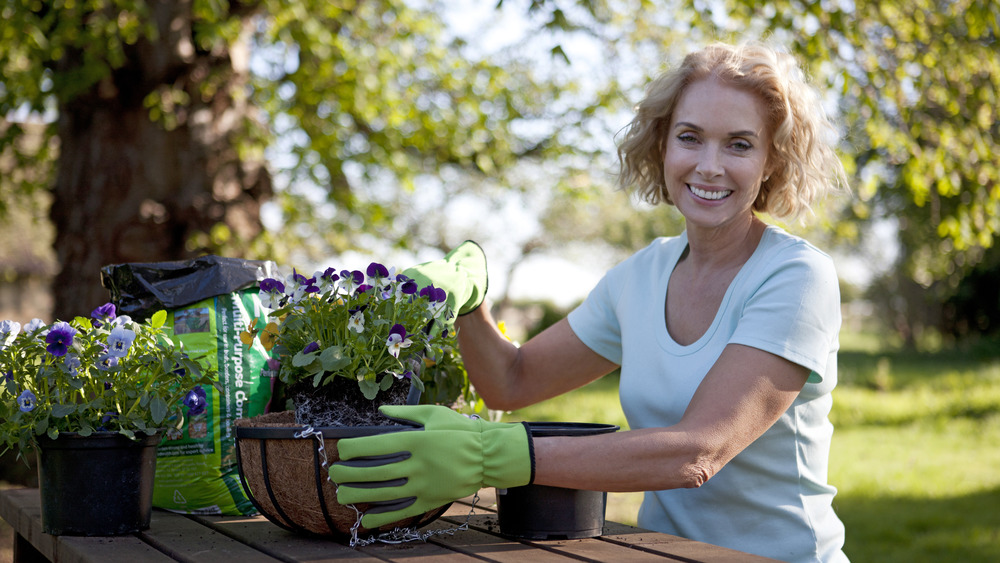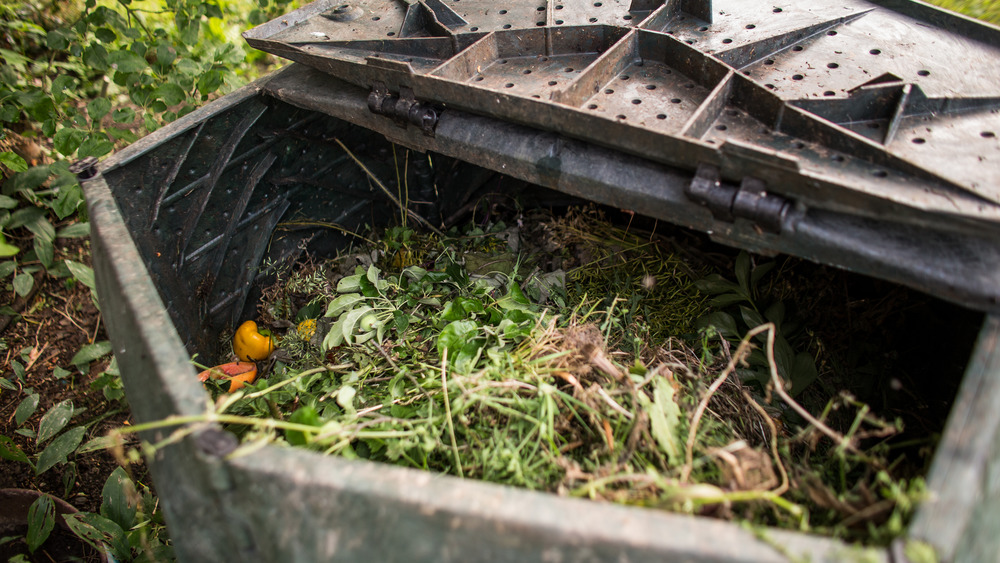These Tricks Will Help You Become A Composting Master
While the pandemic has allowed many people to explore new hobbies at home, composting may still elude even the greenest among us. Especially for those of us who live in apartment buildings or don't have access to a large backyard, this recycling method may appear to be a bigger chore than it's worth. But, with all of the benefits, like saving the planet, for instance, composting offers countless reasons to start. Especially since food waste makes up nearly 30 percent of the nation's trash, even small composting bins can make a difference. With all of the skins and peels from your home-made food, it may be the best time to start — no matter your living space.
According to PureWow, compost is "organic material" that can be added to soil as a way to spur plant growth. This type of waste helps break down various compounds that make way for nutrient-dense soil, which many use in their gardens. Without a garden, your compost offers an environmentally-friendly way to rid yourself of old food items and biodegradable materials. The outlet also notes the two characteristics your composting items must have as "organic matter ... that won't attract pests." EatingWell offers a few more details, saying that you can start your compost bin with five ingredients — "carbon-rich materials," including "leaves, straw, bark, paper, corn stalks, wood chips or sawdust," "nitrogen-rich materials," including "grass clippings, vegetable scraps or coffee grounds," as well as water, oxygen, and "microorganisms, such as bacteria, molds and fungi."
Having these items in mind can make your sorting process much easier.
There are three types of composting
Before you grab a bin, find the right type of decomposing method that works for you. The first type, EatingWell notes, is called aerobic. This involves allowing oxygen to do the composting for you, so you place your items in the bin and stir on a regular basis to aerate the mixture. The easiest option is called anaerobic — just put all of your materials together and let it sit. However, the smell may make you choose otherwise. Lastly, vermicomposting calls for adding worms to your bin. Rather than waiting for the mixture to break down at its own pace, worms speed up the process by eating the compost. As an added bonus, this also "produce[s] a richer finished product."
Have an idea of what you can compost, write out the list and place it on your fridge where you can see it. Items like fruit, vegetables, egg shells, coffee grounds, flowers, lint, yard trimmings and more can all go straight into the compost bin, PureWow explains. Add all of your ingredients to a bin or simply to a spot in your backyard to start.
Grab dry ingredients like dead leaves and sticks first, then add wet items from your kitchen and water. PureWow notes that if you really want to quicken your composting process, you should have a three-to-one ratio of dry ingredients to wet for something called "hot composting." When layered properly, this method takes much less time than just randomly combining all of your waste items, as correct amounts and layers will "spark a chemical interaction that speeds up decomposition considerably." Just make sure to find the ratio that works for you and to properly disperse wet and dry ingredients for the most effective process!

